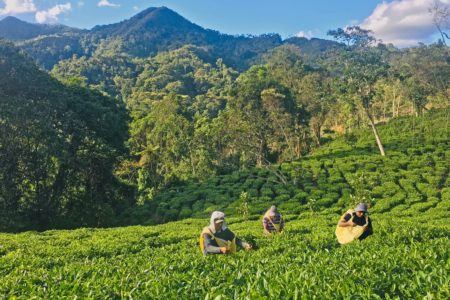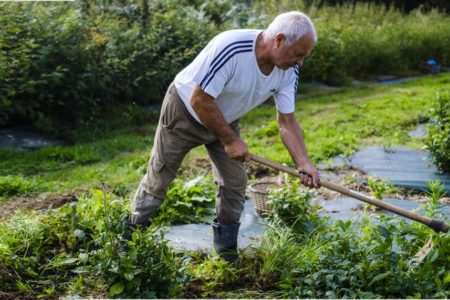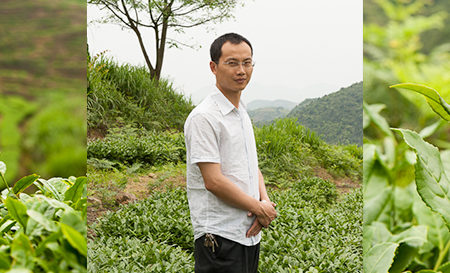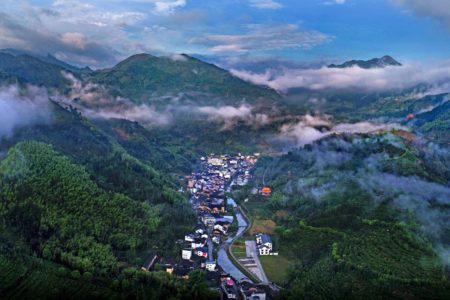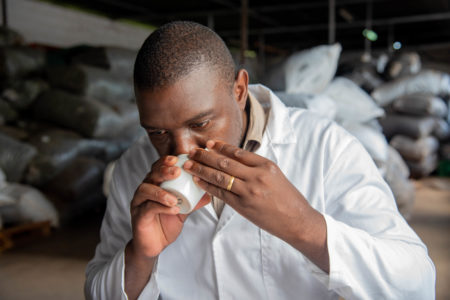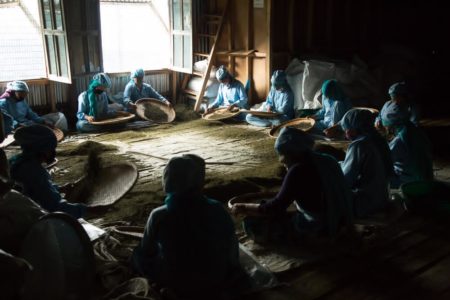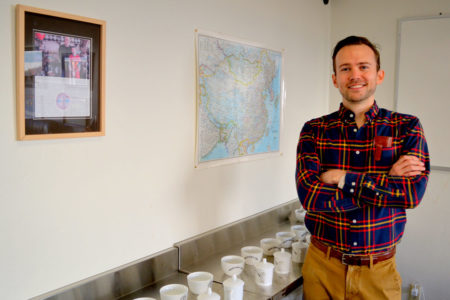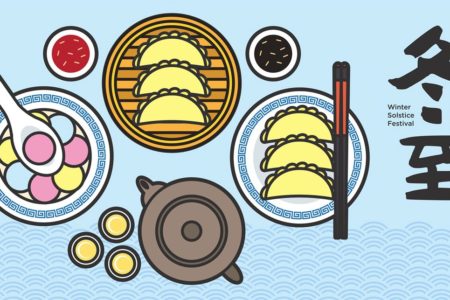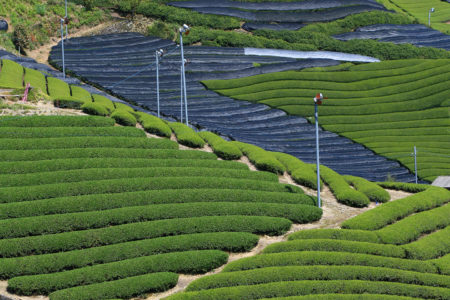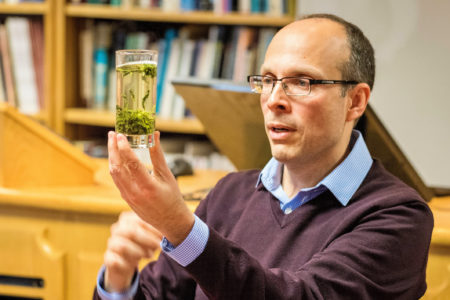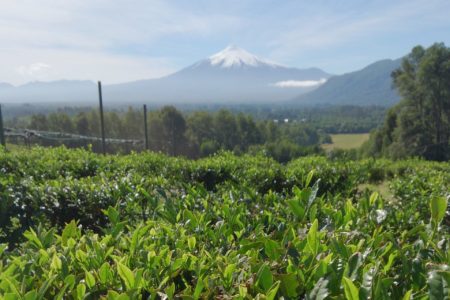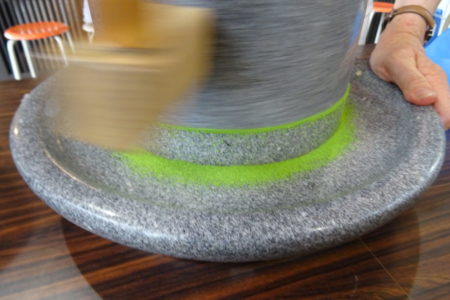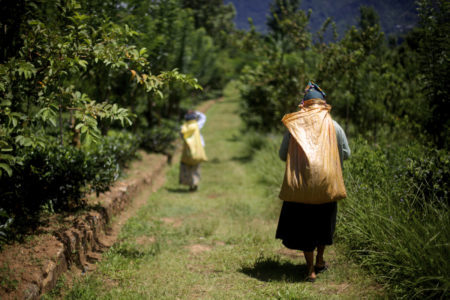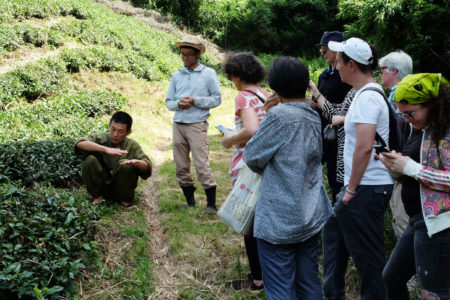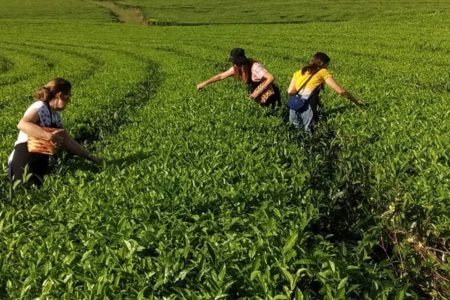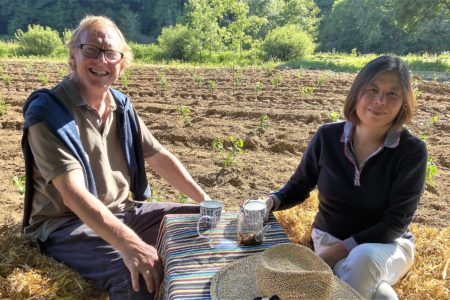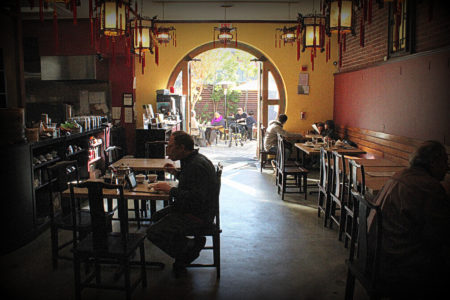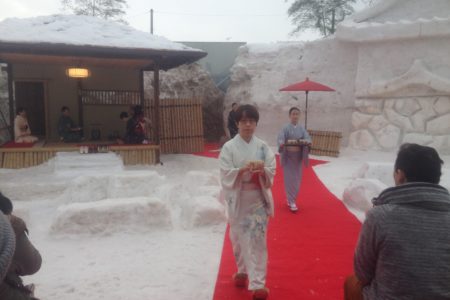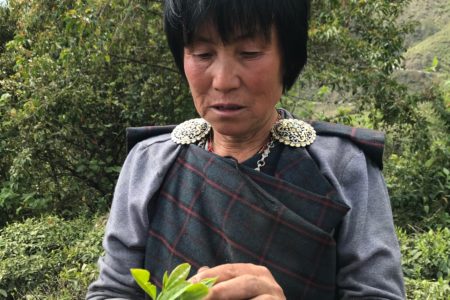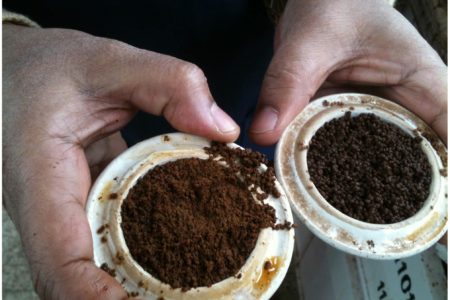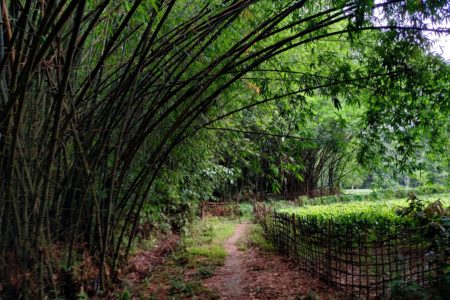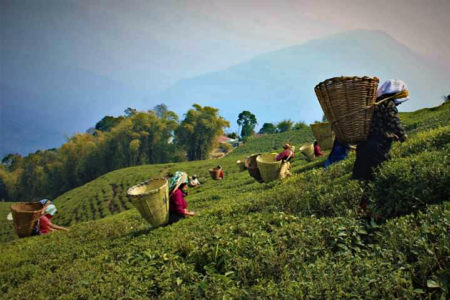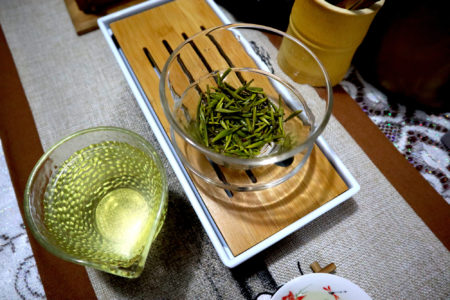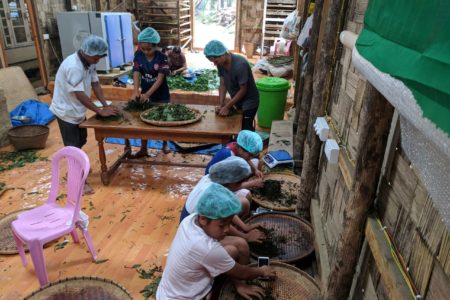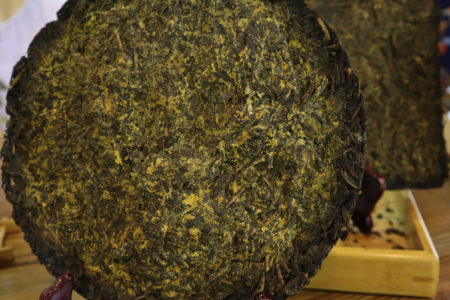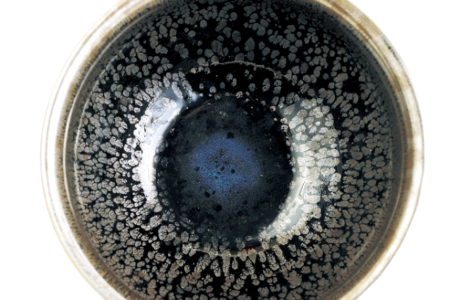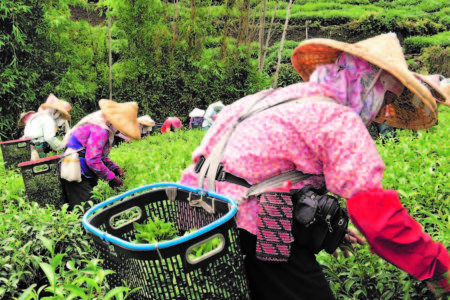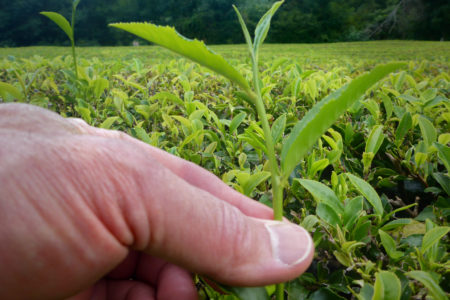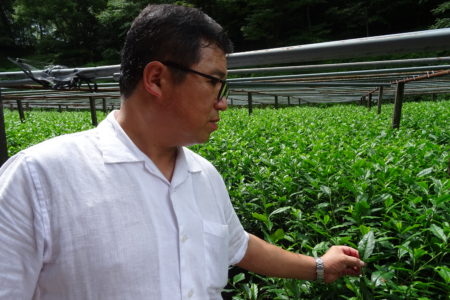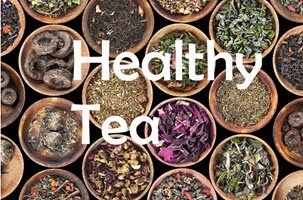The Bolivian government has invested in tea production as part of its Poverty Alleviation Program leading to the creation of ecological brands pioneered by ChaiMaté Tea, an IMO certified supplier producing teas competitive for export.
Read More
Inspiring enthusiasts to refine their taste in tea
The Bolivian government has invested in tea production as part of its Poverty Alleviation Program leading to the creation of ecological brands pioneered by ChaiMaté Tea, an IMO certified supplier producing teas competitive for export.
by Horacio Bustos
The Léonard region of Brittany in Northern France has been considered a land of plenty for centuries; but who would have thought that a tea perfectly expressing the alliance between land and sea would grow from its soil?
by Anne-Frédérique Dayraut
“The indentured migrant laborer community of the tea plantations in Assam and North Bengal in India, has always intrigued,” writes […]
by Dan Bolton
Tie Guan Yin oolong, the quintessential “slow tea of China,” is time-consuming to produce and meant to be savored slowly. In Anxi, Fujian, the birthplace of Tie Guan Yi, the locals, like organic tea grower Rong Feng Wang, are fiercely proud of their oolongs. Here’s Wang’s tea journey.
by Arris Han
Tanyang Gongfu tea is experiencing notoriety as well as increased demand that dates to the 1980s when local growers collectively raised their production standard, earning a reputation for quality hongcha (red tea). The tea is grown in Fu’an which takes its name from a poem in which a Song dynasty emperor bestowed five blessings: “Lucky Heaven, Lucky Earth, Lucky Mountain, Lucky Water, and Lucky Tea.”
by Sia Yu
The Satemwa Tea Estate, founded in 1923, began to revive the production of orthodox teas about 15 years ago. It is the only estate in Malawi crafting orthodox teas. Taster Alfred Mwase says, “my only experience prior to 2010 was CTC. My first tasting of specialty stimulated interest in these unique teas. Satemwa is a pioneering estate that is open to experiments with new tea cultivars, withering times, rolling techniques, oxidation times, and drying cycles.”
by Dan Bolton
The pandemic was the worst thing to happen to Nepal’s Kanchanjangha Tea Estate, but there is a silver lining. “It radically changed how we work,” says Nishchal Banskota, who manages operations via Zoom calls between Long Island, New York, and his family’s tea estate. It’s early morning for me and the end of the day for my father, but after nine months, he says, “I have more confidence that I can manage a farm remotely.”
by Aravinda Anantharaman
“Down-chain tasting invites creative adventures into language and experience that is independent of a single lexicon. The focus is on concrete references to scents and aromas but abstract descriptors that personify overall quality are effective. Of course, your words have to describe something that touches on a shared experience — otherwise, it’s useless.”
by Dan Bolton
Tea Journey readers span the globe. Half of the magazine’s subscribers reside in Asia and Europe and Africa. That’s why this year’s last-minute gift guide features festive items from India, Europe, and China. These gifts bring to mind holiday celebrations around the world
by Dan Bolton
The aroma that swirls from a package of gyokuro, especially one of the highest grades, is so extraordinary that you could stop right there and be satisfied.
by David Glass
Orit Eisenberg is irrefutable proof that it sometimes takes 25 years to become an overnight success. During the recent World Tea Virtual Summit, Eisenberg, a product development specialist and production designer, told her founding story with humor and extraordinary passion. She launched the Mennä ONE in September 2019 after testing 20 prototypes over five years, gradually refining the elusive challenge of controlling steep time on the go.
by Dan Bolton
Given the interest among young adults, tea promoters would be wise to expand their outreach to places where these folks congregate: colleges and universities.
by John Smagula
Chileans drink an average of 427 cups of tea a year, more than any South American country and almost as much per capita as the Chinese, placing them among the top 20 tea consuming countries.
by Horacio Bustos
My introduction to tea was unspoken and visceral. Humble mugs of the strong, milked ‘builder’s tea’ of my youth in the North of England still fill me with nostalgic pleasure whenever I’m in the U.K. My body chemistry has never been without the magic nectar. – Kevin Gascoyne
by Suzette Hammond
The currents of Japanese tea culture are flowing outward to Europe. In the past 50 years, Europeans have been diving and delving into the green waters. What is it about Japanese tea that attracts Europeans, and how is it pouring into European culture?
by Greg Goodmacher
Sri Lanka celebrates diversity in tea. A new generation of Ceylon tea growers recently established an artisan tea collective to showcase exceptional teas produced to interest a niche domestic market and equally, the international market.
by Aravinda Anantharaman
Modern Songyang integrates the essence of mountain and river, the taste of the countryside, and the beauty of folk art and local customs. The terraced hillsides are typical of traditional tea-producing regions, but Songyang is also a model county for national tea industry development. Plantations cover 20,403 acres of plants used in making 76,000 metric tons of Yinhou and Xiang green tea.
by Sia Yu
The Global Japan Tea Association educates and informs tea enthusiasts about Japanese tea, but it is also about making and developing human relations that transcend national boundaries.
by Greg Goodmacher
Uniquely positioned in the southern hemisphere where the harvest will soon be underway, Argentina is one of the world’s great tea producing nations. The first few months of the November 2019 harvest were very rainy. Growers report achieving normal volumes of good quality black tea for export.
by Horacio Bustos
In 2014 in Brittany, France, Denis and Weizi Mazerolle processed 50 grams of their very first green tea using traditional Chinese methods. The tea had its own typicity, expressing aquatic, greeny, and seaweedy notes, it was a pure evocation of its terroir. Two thousand trees now make their garden, Filleule des fées, one of the largest in Europe.
by Anne-Frédérique Dayraut
Several studies reveal that healthy skin begins with the microbes living in your gut. Drinking a flavonoid-rich Silver Needle white tea helps gut microbiota adjust biological activities, improve bioavailability, and produce antioxidants such as flavonols and phenolic metabolites.
by Brooklynn Krul
While hot tea still cools millions worldwide, it is iced and cold-brewed tea that quenches the thirst of urban dwellers on the go. Our Summer Fun gift issue offers some great iced teas, pitchers, tea makers and teaware. Now is the perfect time to review the terrific selection of recipes for A Summer Barbecue by Culinary Tea author Cynthia Gold. Recipes include tea-smoked salmon, tea-grilled wings with hot dipping sauce, matcha and white bean dip, and gourmet s’mores.
by Dan Bolton
In marketing tea, health has always played an important role. In her book Tasting Qualities, Sarah Besky writes that back when the Indian Tea Association (ITA) was promoting “Empire Tea” (teas originating in the colonies), medical journals were linking the increased consumption of these malty, astringent teas from British colonies to a population-wide rise in indigestion and constipation. Tea’s most important benefit today is boosting immunity.
by Aravinda Anantharaman
At age 6, on his way to school, Roy Fong would linger at a Hong Kong food stand where day laborers were making gongfu cha. Sometimes someone would offer him a cup, and he never forgot the wonderful aroma and taste.
by Janis Hashe
The originators of the Japanese tea ceremony believed that the simple activity of sharing tea with a friend was like the path of a falling cherry blossom. It is a fleeting encounter on a path that can never be exactly repeated.
by Greg Goodmacher
There is no doubt that in this golden age of tea quality frontier teas are precious opportunities to increase the spectrum of possibility. With the right care, everybody could win as producers gain a new source of income and the flowering of that beautiful craft-pride from focused artisanal activity. We should never forget, when tasting new tea, to exercise reverence for the passion and determination it takes to harvest and convert any form of the leaf into a finished tea.
by Kevin Gascoyne
Shun the expensive spring water If you want a better-tasting cup of green tea ― your water of choice should be from the tap. If it is health benefits you seek, choose bottled or deionized water for superior extraction of catechins, nearly double that of tap water.
by Jaq James
Tasting Qualities: The Past and the Future of Tea by Sarah Besky manages to easily deconstruct and demystify the space between the plantation and the cup of tea.
by Aravinda Anantharaman
During the past few decades, all types of tea, from herbal to Pu’er, have re-emerged in premium formats favored by younger generations. “What makes the super-premium tea category unique, in my view, is the importance of storytelling with regard to ingredient origin, processing, and functional appeal,” says Euromonitor Beverage Analyst Howard Telford.
by Janis Hashe
Globally fewer men drink tea than women but tea culture varies greatly by region and custom. During the past decade, the stigma associated with men sipping tea has eased. In ancient times Japanese samurai drank tea and statesmen continue that tradition. Popular magazines like The Art of Manliness post helpful guides like this “Primer on the Manly Tradition of Tea” and on the big screen Jean-Luc Picard, the captain of the US Starship Enterprise drinks tea. What more needs to be said?
by Dan Bolton
The tea education initiatives of specialty tea importer Devan Shan founded and supported in this country and India live on ― memorials to a man of enormous accomplishment.
by James Norwood Pratt
The Tea Leaf Theory team is very lean, choosing to remain independent, bootstrapped, refusing certifications, they represent a new kind of startup, modern yet rooted in something traditional, ancient even. There’s the social impact but Tea Leaf Theory is not an NGO working for small farmers. “We want to make them entrepreneurs, not beneficiaries,” say co-founders Upamanyu Borkakoty and Anshuman Bharali.
by Aravinda Anantharaman
Sikkim’s Temi Tea has protected and sustained its legacy. But it also made this legacy a part of its brand story, one that complements its topnotch tea.
by Aravinda Anantharaman
What would rhyme have to do with a tea’s aftertaste? To understand the many layers of this play on words, it is important to know that Chinese singing and by extension Chinese poetry have a Yang (masculine) and Yin (feminine) rhyme system.
by Virginia Utermohlen
Wang Hai tea is a pre-Qingming green tea that is grown on Mount Tiantai in China’s Zhejiang Province.
by Jaq James
Three sisters from Manipur, India, and their brother launched Forest Pick Wild Tea about two years ago. Together they organized villagers to harvest tall-grown tea trees on a schedule, arriving with portable processing equipment to make artisan oolong, black, green and white teas. “Irrespective of the market size or market opportunity, Forest Pick Wild Tea is not another start-up, but an eco-system we are creating in which all the villagers participating will benefit.” — Julie Gangte
by Aravinda Anantharaman
Fu Brick Dark Tea, also known by its visually descriptive name of Golden Flower Dark Tea, is a relatively unknown fungi tea in China that is awaiting one clever and energetic entrepreneur to bring it into mainstream awareness in the West.
by Jaq James
Jian Zhan teaware inspires poetic praise among its ardent lovers and devotees. Those who gain a genuine appreciation of Jian Zhan teaware find it impossible to shed their fascination with the history, science, art, and economics of these enchanting cups.
by Jaq James
There is no need to fear contagion from tea, a beverage proven to boost your immune system with beneficial phytochemicals […]
by Dan Bolton
He speaks of tea as one would about a real person, as a friend. That’s true love, if it can be called anything.
by Aravinda Anantharaman
We don’t yet fully understand why time of day matters when plucking tea leaves. At dawn leaves wet with dew […]
by Virginia Utermohlen
A growing body of studies of leaf chemical composition is beginning to support the experienced tea maker’s choices. A striking […]
by Virginia Utermohlen
From drones to DNA fingerprinting, technology is enhancing tea without reducing quality.
by Peter Keen
Tea farmer, seller, event coordinator, gourmet, and nationally certified tea appraiser, Yasuhiko Kiya radiates love for his tea-growing neighborhood, Japanese tea, and his son, who will become the fourth generation to run the family business.
by Greg Goodmacher
This is an unusual Tea Journey review: a kit of 45 vials of chemical compounds that correspond directly with the […]
by Peter Keen
If you are wondering if tea can help you sleep better, the quick answer is yes so long as the tea is caffeine free.
by Scott Anderson
Many mothers feel they don’t produce enough milk, especially in the earlier days, weeks, or months after giving birth; after all, when you breastfeed, you can’t see exactly how much your baby is eating. What if increasing your milk supply was as easy as brewing a cup of tea?
by Giselle May
The question is old and simple: Does drinking green tea directly create weight loss? The answer is not at all simple and it hasn’t changed.
by Peter Keen
Tea helps your brain maintain efficiency by altering the physical structures of its networks of connections, a finding that opens up a promising new horizon in the investigation of tea and wellness.
by Peter Keen
Tea is proven to enhance the well-being of those who drink several cups a day. It inspires a process of discovery among imbibers, cultivating a deep appreciation for the growing, crafting, and preparation of great tasting tea. Finding your own favorite tea leads to a daily ritual and, in time, a healthy life-long habit.
by Dan Bolton

